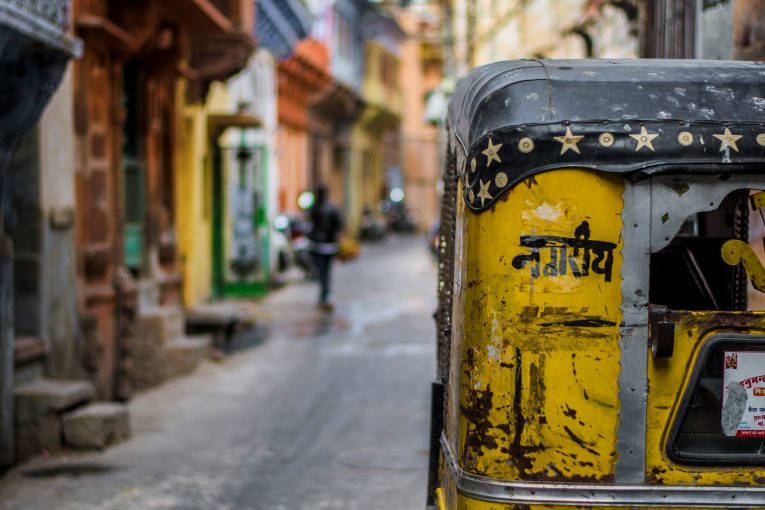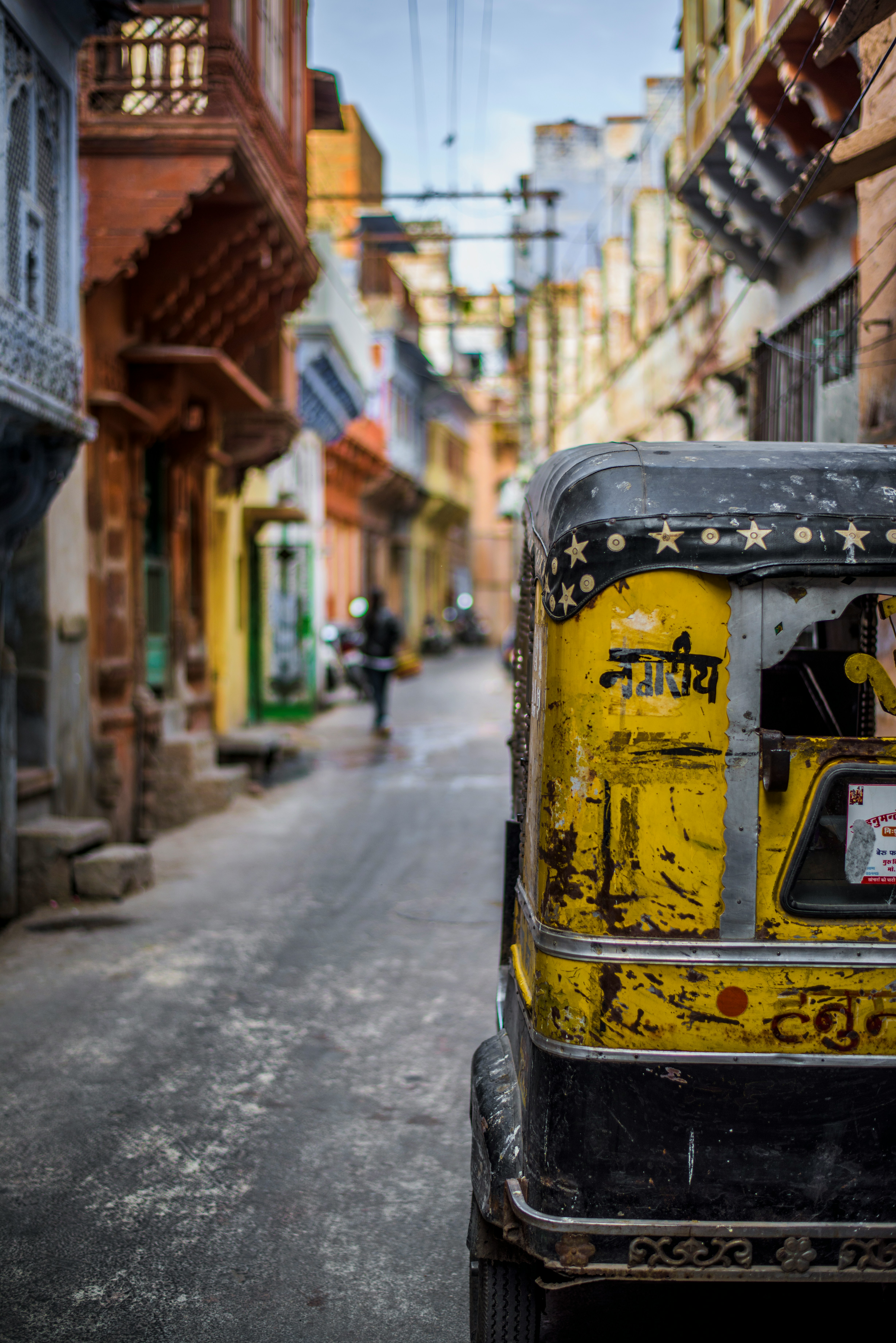

By Praniti Gulyani
Dear Bullock Cart Driver,
I know that my letter might never reach you, and my continued determination to write it despite the knowledge of this fact continues to surprise me.
I am writing to you more than half a century after your existence, and even though this belief might discard certain contracts of worldly logic—I am certain that my words will reach you wherever you are. After all, transcending boundaries and touching hearts is what words do best.
To begin with, I wish to describe how intrigued I am by your occupation! In addition to driving your bullock cart through subtle villages and slow flavors that run deep in your bones, you also got the opportunity to eavesdrop on everyday conversations. I wonder if you picked the best parts and kept them in pockets of your heart, just so that you could go back to them whenever you needed to smile.
As opposed to being a mere cardiac organ, I would say that your heart was a happiness reservoir that widened with every ride that your bullock cart took. I wonder how it felt to carry an ever-evolving archive of joy within your diaphragm and to be able to add to it every day. We do not get a chance to do that over here—in my modern, technologically driven world.
I often think about the relationship between you and your bullock, and mull over whether you had a name for him. From everything that I have heard about you, I conclude that you had an almost parental relationship with your bullock—which is possibly why you were so protective of him. I cannot help but ponder over how it might feel to experience  paternal affection for another species.
paternal affection for another species.
I am certain that you looked upon your bullock as the center of your life. He steered your livelihood and ensured that there is food on your plate and clothes on your backs. I imagine you taking him for a bath in the communal river, and splashing fistfuls of cold, salty water on his sagging body as he tossed his massive head from one side to the other—enjoying moments away from the tough, heavy noose.
Both of you were inseparable; your bullock cart and you.
The only momentary separation that you experienced was during that one day, as you stood by the train station, burning in the heat of Masur—which is often labeled as ‘a town on flames’ during the summer. You looked around at the passengers with eager eyes, hoping that one of them would pause for a ride. Your attention shifts to the first-class compartment of the train, as a crowd of orange-clad Brahmins gingerly step out.
Like other cart drivers, you inched your bullock closer—with the hope that they would notice you. Legend had it that if the Brahmins rode in your cart, their footprints would lead to yearlong prosperity.
Moreover, ferrying the Brahmins around was a source of pride for you—and the sharp glimpse of orange in your cart would elevate your proud, masculine glow, as you deliberately pulled your cart in front of the other drivers to show them that you—and your bullock—had won.
As you look at the orange glow of the Brahmins, and realize how accurately they resemble the shimmer of the sun, you are reminded of that one time when one of those absurd-activist-people came to your village, and tried to talk you out of looking upon them as superior.
“There is only one sun, the ball of fire in the sky.” they had argued, when your grandmother compared the color of the Brahmin attire to this celestial body.
Then, your grandfather—a man who prided himself on knowing his culture and tradition with precision and passion—brought up arguments from the Manusmriti that advocated the active presence of the four classes, where the ‘Brahmins’ ranked at the foremost position, as they were entrusted with the tasks of thought and speech.
You were an avid consumer of culture and convention, and part of why you wanted to ferry the Brahmins was to engage in this very exchange of thought and speech. You hoped to speak to them about the Mahabharata and Upanishads, and trade traditional ideologies.
However, that day—the Brahmins walked right past you and decided to mount the cart of Samir Kumar, a fellow cart driver you absolutely despised. Cursing under your breath, with a betel leaf between your teeth— you clenched your fists and promised yourself that you would get them tomorrow.
A moment later, the station master yelled your complete name as opposed to a vernacular, gooseberry-centered expletive.
Taken aback, you mustered up the courage to counter-question, and inquired whether you should get your bullock cart with you—to which the station master responded with overt impatience and sent a well-aimed spittle carrying the word obviously into your face.
The station master spent most of his time standing by the edges of the platform with tea between his palms and smoke on his scaly lips. He hurled stones at the bullock carts with sadistic comments about how their drivers were from another era. He controlled trains after all, and they guided mere bullocks—thick skinned, scratch animals that constantly navigated between resting and roaring.
As you approached him, and almost instinctively stood in front of your bullock—protecting him from nothing in particular. Standing at an unusual distance from the station master, you saw a young boy—who did not look a day older than thirteen. Clad in clean clothes with combed hair and washed ears, he looked at the station master with worried eyes who seemed to look back at him assuringly.
“This young boy needs a ride,” the station master spoke.
Maybe by offering you the opportunity to ferry this well-clad boy, the station master was extending an olive branch. Unlike other olive branches, this one was stamped with crimson, betel-covered fingerprints and was cautiously positioned between the grimy nails of the station master—right between the brass bands of opportunity and corruption.
Thus, you had to be careful.
Asking the boy to wait for a second, the station master placed a hand on your shoulder and urged you away. He spoke to you in surprising gentle tones about the capitalist nature of present day society, and how money—not societal customs—was what brought food on your plate and put clothes on your back.
It was almost as though he was numbing your tongue with the sugar-dazzled syrup of already known information before striking your taste buds with the sour grapefruit of reality.
As the conversation turned to the bullock cart, the breath of the station master seemed to hiss and spiss, bubbling with vapors of suspicion. He said that the cart was needed, and you could walk by the side. Bewildered, and slightly concerned about the safety of your bullock, you put an arm around his sagging chin—and asked, why you could not drive.
The station master shifted the conversation back to the money, and spoke about how this ride would give you double fare. It was the money that mattered, and all they needed you to do was to walk along and be prepared for emergencies.
You looked at your bullock, and told the station master how you had been the sole driver of this cart for 15 years, and emphasized on how he was not used to anyone else. You mention violent uprisings, and chances of being thrown off followed by injuries and head splits.
Then, the station master got worried and raised his voice—stating that if you did not concede, your bullock would get diseased—polluted—rather and no one would ride your cart after that.
As you grapple with the unevenness of his claims, noting how the buttons in the young boy’s coat were polished and clean, like circular moons strung into the strands of the night—the station master whispers mahar into your ear, with a pointed glance towards the young boy.
Almost instantly, you nod abruptly and leap off your bullock.
The station master handed you the double fare cautiously wrapped in a handkerchief so that you did not have to touch the bare currency. The boy had touched it too.
Then, you shifted your focus to ensuring that you maintain a safe distance from the boy—making sure that you do not brush fingers or touch shadows with yet another member of the clan that possesses the power to pollute—no matter how clean and well-washed they are.
Note: This creative critique is inspired by a real life incident that Dr. B.R. Ambedkar—a historical individual who is labeled as ‘The Father of the Indian Constitution’ experienced during his childhood. An active campaigner and law professional who worked actively for the rights of the ‘lower caste’ members— as he was one of them himself, Dr. B.R. Ambedkar had several experiences that fueled his passion for the cause making him a memorable personality in Indian history. The link to the article that alludes to the ‘bullock cart’ experience that I have written about in my letter is as follows:
https://www.thinkpragati.com/history/3257/childhood-journey-becomes-nightmare/





